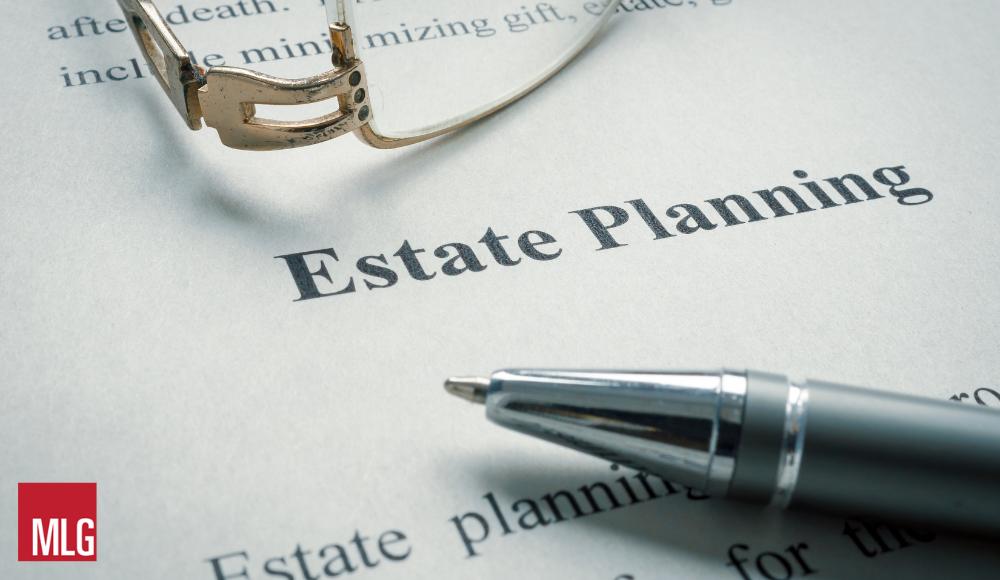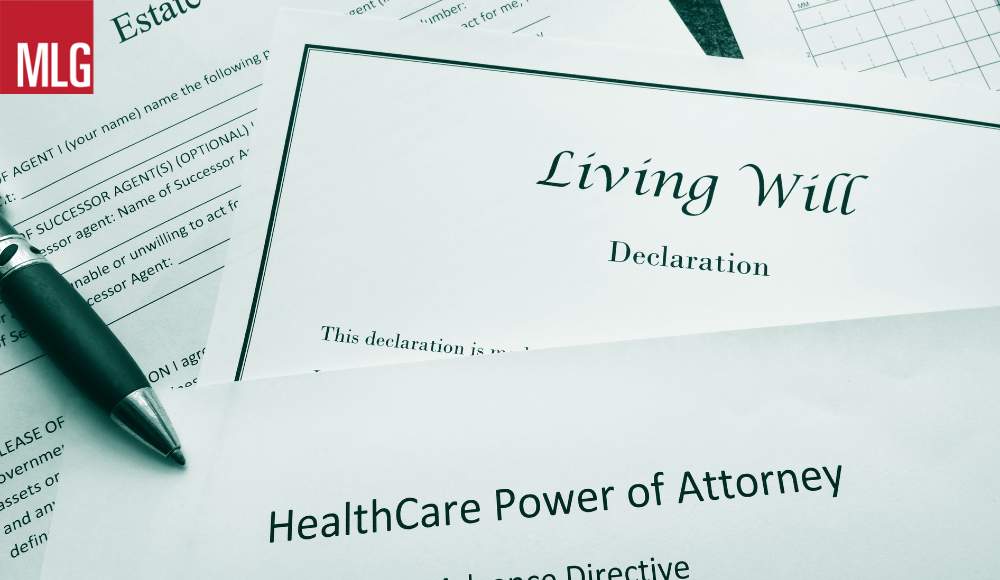Estate Planning
PRACTICE AREAS

Manassas Estate Planning Lawyer
You have spent most of your life establishing a home and providing for your loved ones. You wish now to think about what happens to those persons close to you when you pass. We often hear of friends or other family members passing without having taken steps to prepare.
We hear of the problems occurring when a friend or family member passes and various problems occur including complicated probate, issues concerning responsibility for debts, questions about the disposition of the marital home and others.
At The Manassas Law Group our estate planning and administration attorney, Richard H. Boatwright, is committed to providing you with the representation you need to meet your goals and protect those who are close to you.

Contact Us
Building your estate plan begins by speaking with a lawyer about your goals priorities and concerns. Call our firm at 703-361-8246 to arrange a confidential consultation. Call 703-361-8246
Estate Planning Strategies – Wills and Trusts
There are a number of ways that you can leave your property to your loved ones after you die. The laws of the state of Virginia offer the opportunity to accomplish your goals in such ways that substantial time and money can be saved for both you and your loved ones if the proper steps are taken.
Richard Boatwright of The Manassas Law Group can assist you in identifying your goals and then devising the best methods for achieving your objectives.
Your Last Will and Testament is your most basic estate planning tool. It is important to understand which of your items of property will transfer according to your Will and which may transfer based on how it is titled or whether it has been previously designated to a survivor. Good estate planning coordinates your Will with how your property is presently owned or titled.
Trusts, including Revocable Living Trusts and Special Needs Trusts may, under some circumstances, be needed to achieve your estate planning goals, such as avoiding probate, planning for incapacity, and protecting the assets of younger beneficiaries.

Probate
Probate is the system of court proceedings by which the estate of the decedent is processed and distributed. It usually includes the admission of the will, or if there is no will the designation of heirs according to the principles of intestate succession. A personal representative is appointed by the court and is thereby given the authority pursuant to terms of the will to collect and inventory the assets of the decedent , liquidate them if necessary , pay all the debts , taxes and administrative expenses of the estate and distribute the net proceeds to the beneficiaries
Richard Boatwright of The Manassas Law Group can assist you in the event you are called upon to serve as the personal representative of an estate.
- The probate process
- Avoiding Probate


Estate Administration Attorneys
If you or a family member is involved in a probate proceedings get in touch with one of our Estate Administration attorneys. Call our firm at 703-361-8246 to arrange a confidential consultation
Providing for Incapacity
We all recognize that it can be difficult to predict what our circumstances may be in the future. We all hope to remain healthy for as long as possible. We wish to know how to address the issues that can arise if we become mentally or physically incapacitated.
A Power of Attorney is a legal document that is used to give someone else the authority to take actions on our behalf, such as signing your checks to pay your bills. It can be general in nature (a General Power of Attorney) so that you can give broad powers to the person or you can limit the powers ( a Limited Power of Attorney) given so that only specific actions are permitted to take place on your behalf. A Durable Power of Attorney will still be in effect even if you become disabled or incapacitated.
A General Durable Power of Attorney is a written statement whereby you nominate someone you trust to take care of your finances while you are unable to due to incapacity. Frequently, individuals who do not have a Power of Attorney in place are the subject of guardianship or conservatorship proceedings, where a Court selects the person or person who will look after their affairs.
A deterioration of your mental health could impair your ability to communicate with your Doctors. A Health Care Power of Attorney is a written instrument where you designate a person close to you who is authorized to communicate with your Doctor concerning your care. The Health Care Power of Attorney may also be referred to as an Advance Medical Directive when it provides that the person you have selected can make decisions concerning your care when your illness is terminal.
Richard H. Boatwright can assist you in deciding whether you will require a General Durable Power of Attorney, Health Care Power of Attorney, or Advance Medical Directive.
Estate Tax Planning
Recent changes in the Federal Estate and Gift tax laws have had the effect of largely eliminating the necessity of significant tax avoidance planning for many estates. However some estates still remain exposed to the Federal Estate taxes in the absence of proactive planning.
Richard H. Boatwright can review your current estate posture and determine whether your estate might be exposed to the Federal Estate Tax at your passing.

Estate Planning FAQs
Estate & Trust Administration Frequently Asked Questions
The information provided below is general in nature. These examples are not intended to serve as legal advice because we do not know the particulars of each of your situations. We recommend getting legal advice specific to your situation. Your use of this site does not create an attorney-client relationship with our firm. We would be happy to meet with you and discuss your particular questions in depth. Please call (703) 361-8246 or send us an email to dick@manassaslaw.com.
Q: My husband passed last week. He left his property to me and named me Executor of his Will. All of his property was in accounts payable to me except he owned 3 cars and 2 checking accounts in his own name. The value of the cars and checking accounts is approximately $100,000. Will I be tied up in probate for a couple of years?
A: Since your husband’s assets titled in his own name exceed $50,000 in value you will need to Not only record his will but also do a probate of his estate. However, since you are not only the Executor but are also the sole heir, you will not be required to file accountings. As a result, the probate process will not be overly burdensome or lengthy. You will need to record the Will, file an Inventory of your husband’s assets and once his debts and taxes have been paid you will be entitled to file a Statement in Lieu of Account to close his estate.
Q: My Father passed and named me as the Executor of his estate. What do I need to do?
A: I recommend that you seek legal counsel before probating the will. Not every estate is required to go through the probate process. In some cases, the value of the assets or the type of assets (real estate as opposed to non-real estate), do not require the qualification of an executor. In these types of cases, by qualifying as the executor, you may incur additional work and expense that would not have been necessary.
Q: My uncle passed away recently and he left a will. He left all of his property to me through pay on death accounts. Do I have to probate his will?
A: you should probate you uncle’s will. You do not need to qualify as executor. Probating (recording) the will means putting the will on record at the local courthouse. The cost of simply recording the will is minimal. In the event, additional property is later located, the Will is recorded and you do not have the issue of having lost it in the interim.
Q: My father passed away recently. My sister and I are his only heirs. He owned a home, some tools and a used car. Do we have to go through the probate?
A: The requirement of probate depends upon the value of her personal property of the estate and the debts that your father owed at death. For example, if the tools and the car combined are valued at less than $50,000, you may be able to recover the bank account without qualifying as administrator. The Small Estate provisions under Virginia law permit you and your sister to file an Affidavit with Department of Motor Vehicles (DMV) and title to the car. If your father’s home does not need to be sold to pay debts, then an administrator is not required to transfer title to the home to you and your brother.
Q: I have been named the executor of my cousin’s will. I think he has more debts than property. Do I have to take care of his estate?
A: Insolvent estates are those estates where the debts are greater than the assets. These estates pose many traps for the unwary. The Executor has a responsibility to protect the creditors as well as the beneficiaries under the will. Under certain circumstances the Executor can be held responsible if the rights of a creditor are not protected in accordance with Virginia law. Given the complexity involved in administering an insolvent estate, you need to determine if you want to qualify as executor. You should seek legal advice before probating the will and qualifying as executor. An insolvent estate must be administered in accordance with the provisions of the Virginia Code regarding the priority of payment of creditors.
Q: My Wife has just passed away. She did not leave me any property in her Will. Is there anything I can do? Do I have any right under Virginia law?
A: As your wife’s surviving spouse, you have the right to make certain elections notwithstanding the terms of your spouse’s Will. These include electing a family allowance and the exempt property allowance. You also have the right to claim either the homestead allowance or the elective share of your husband’s augmented estate. Depending upon the circumstances including the manner and type of ownership of your and your spouse’s property as well as the length of the marriage the elective share could be larger than any or all of the allowances listed above. The computation of the elective share can be complex. There are many issues surrounding the timing and manner for making these elections, the determination of the assets included in the augmented estate, and potential defenses to the claims. A review with a qualified attorney is recommended.
Q: I have been appointed by the Court as the executor of my brother’s estate. Will I have to pay a federal or Virginia estate tax? He has a mutual fund. Will I have to pay an income tax on the income earned by the mutual fund?
A: The requirement to file and pay federal estate tax will depend upon the value of your father’s estate for estate tax purposes and the year of his death. Your father’s estate for estate tax purposes will include his real estate, bank and brokerage accounts, retirement accounts, life insurance, cars, furniture, etc. If your father passed away in 2019, you are required to file a federal estate tax return and potentially pay estate taxes if his estate for estate tax purposes (including adjusted taxable gifts made during his lifetime) exceeded $11,000,000. The Virginia Estate Tax was repealed for decedent’s dying after July 1, 2007. You will have to file and potentially pay income taxes on income earned by your father’s estate if the estate’s income exceeds $600 during the estate’s taxable year.
Q: My brother passed away last week and I am his executor. His will divides his assets between his three children. His bank account was owned jointly with me with the right of survivorship. Who should receive the funds in this bank account?
A: Because the bank account was owned jointly with you with the right of survivorship, the account is not included in your brother’s probate estate. The survivorship feature of the bank account overrides the provisions in your brother’s will. The bank account belongs to you as a result the survivorship designation. If your brother owned other assets in addition to the bank account, there may be a necessity to qualify on his estate and administer those assets he owned in his own name. Those assets which he owned in his own name, if any will be subject to the provisions of his Will.














